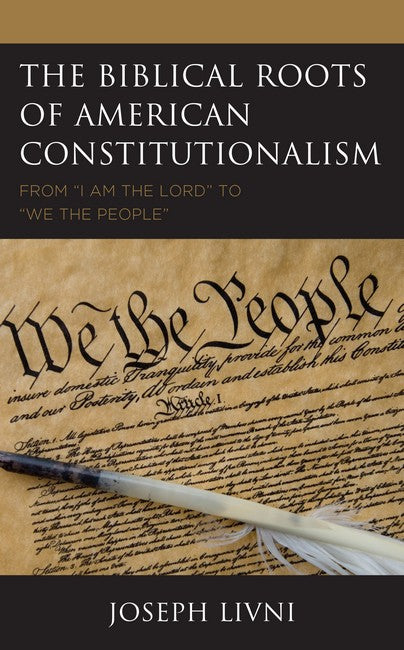Joseph Livni is independent scholar.
Request Academic Copy
Please copy the ISBN for submitting review copy form
Description
Introduction: Nice to Meet You... Chapter 1: Once Upon a Time... Chapter 2: The Difference between Political Concessions and Constitutional Liberties Chapter 3: The Covenant of Israel: Customary Law or Law Chapter 4: The Covenantal Society: Lex Rex Chapter 5: The Covenantal society, Structure, Organization, and Power Flow Chapter 6: Justice Administration in Biblical Israel Chapter 7: Inventing a Covenantal Society is Impossible Chapter 8: Covenantal Psychology Chapter 9: Evolution Tree Chapter 10: God Gave Moses the Law Chapter 11: The Supremacy of the Law Chapter 12: Evolution, Customs, and Law
In an era in which academic specializations seem to be conceived ever narrower, Livni's book presents the reader with a stimulatingly broad perspective of the "genealogy" of the covenant idea in American constitutionalism. Livni's analysis encompasses history, theology, politics, and culture, but also introduces data from such scientific fields as biological evolution and statistical analysis. Livni's unique cross-fertilization of ideas yields numerous insights of great interest. -- Ira Robinson, Concordia University Joseph Livni's provocative work is a unique contribution to the study of the American Constitution - not because it is a new perspective drawn from political science, but because it isn't. Thinking about the Constitution as a covenant may not be entirely new, but postulating the impossibility of the Constitution absent a covenantal society, and opening a window into the origins, essential elements and continuity of covenantal society as distinguished from hierarchical society is new. I found interesting also the extensive discussion from sociological, scientific and mathematical perspectives of the tenacity of covenantal societies, especially their persistence even within broader hierarchical polities. The Biblical Roots of American Constitutionalism:From 'I am the Lord' to 'We the People' is not only new, it is timely. Contemporary America is in the midst of a constitutional debate over constitutional transformation to a more hierarchical model. This book and its thesis should be an important contributor because, without addressing the specific contemporary context, it can promote a better understanding of what is at stake in the dispute over the contending constitutional theories of "Living Constitution" and "Originalism". -- Harvey Bines, Partner, Sullivan & Worcester LLP

